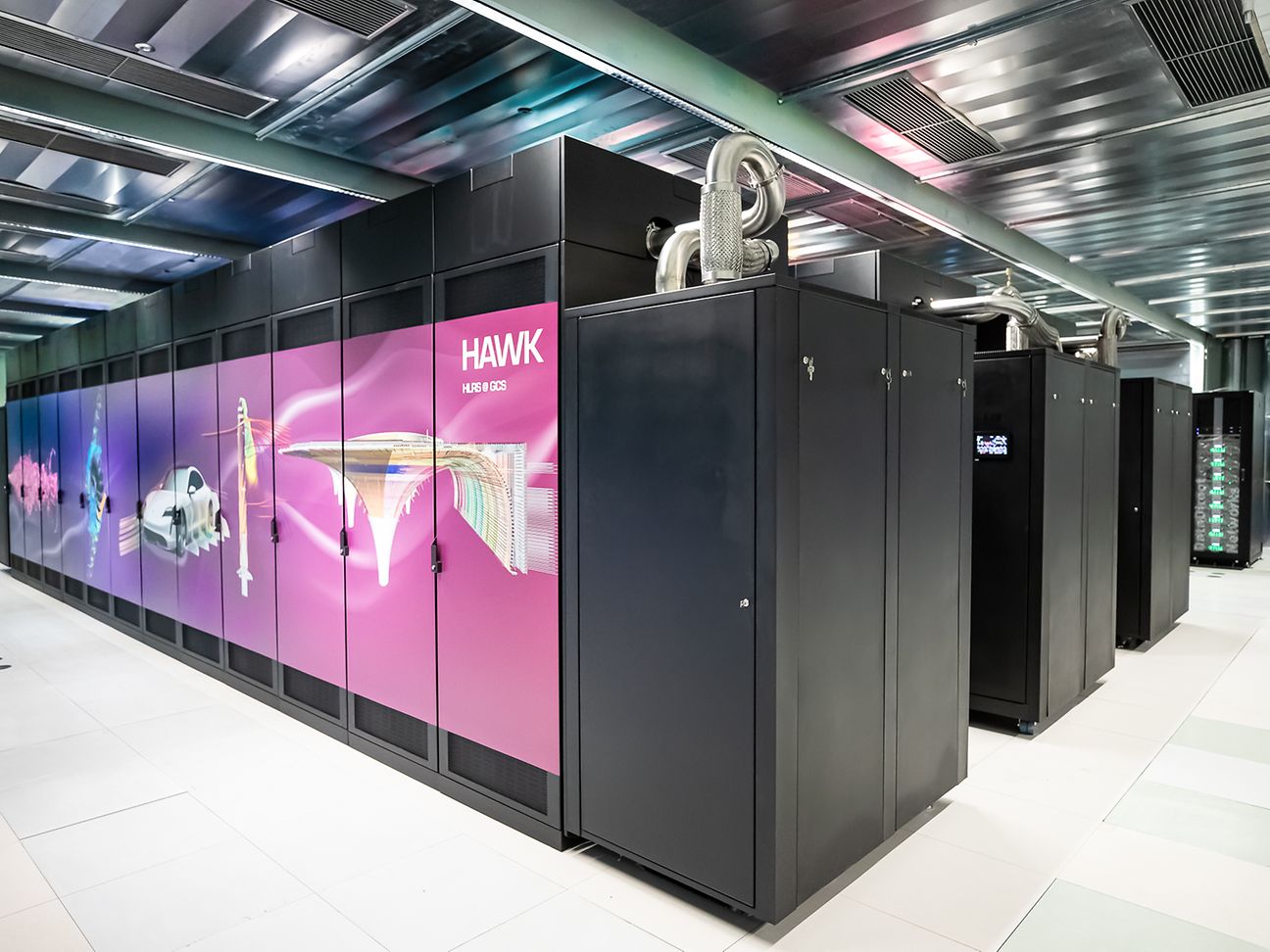

More supercomputer power from the Open Telekom Cloud
- The “Hawk” supercomputer in Stuttgart in operation
- Access available via a
T-Systems online portal - Global supercomputer for engineering services
The Open Telekom Cloud now offers even more supercomputing power as the High-Performance Computing Center in Stuttgart (HLRS) put its new “Hawk” supercomputer into operation on Wednesday. According to HLRS, Hawk is among the fastest high-performance computers worldwide and the fastest general purpose system for scientific and industrial computing in Europe.
Winfried Kretschmann, premier of Baden-Württemberg, and Dr. Michael Meister, Parliamentary State Secretary to the Federal Minister of Education and Research, officially put the new supercomputer into operation. The computer made by Hewlett Packard Enterprise (HPE) is equipped with over 11,260 AMD Rome processors and more than 720,000 processor cores. Its computing power is approximately 25.95 petaflops (approximately 25,950,000,000,000,000 floating-point operations per second) and, as a result, is roughly three-and-a-half times faster than the previous system. Examples of industrial and scientific use cases include crash and aerodynamic analyses, improvements to power generation from wind power plants or high-resolution climate models. The supercomputer provides computing power for Wissenschaft und Wirtschaft GmbH (hww), a private-public partnership between the Federal State of Baden-Württemberg, the HLRS, the Karlsruhe Institute of Technology (KIT), Porsche, and
Simple access to the supercomputer
A monthly fee – depending on the number of users – is payable for access to the systems. All other elements are invoiced depending on consumption. Customers can simply book additional software components that they also require. If they already have their own licenses, they will incur no costs for this. Customers greatly benefit from the fact that all of the resources they receive are tailored to their needs. They no longer have to deal with several providers and, consequently, can perform all kinds of simulations with the supercomputer via the Open Telekom Cloud.
Further information is available at
open-telekom-cloud.com/en
cloud.telekom.de/en/infrastructure/plm-cloud
About Deutsche Telekom: Company profile
About
